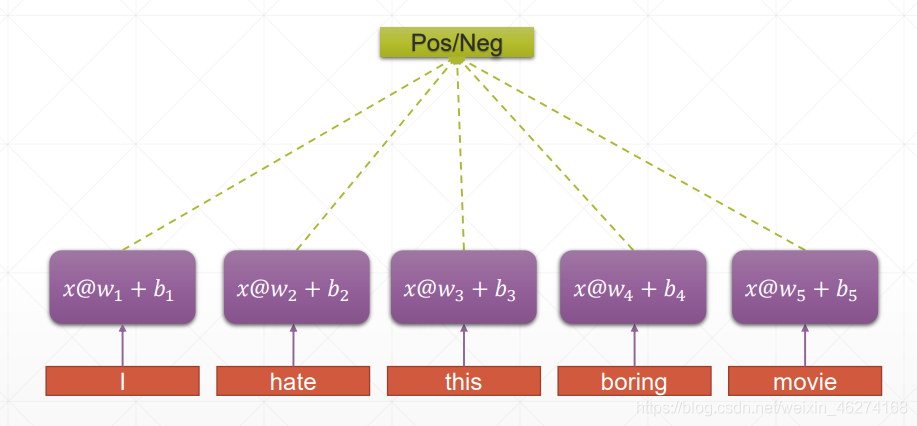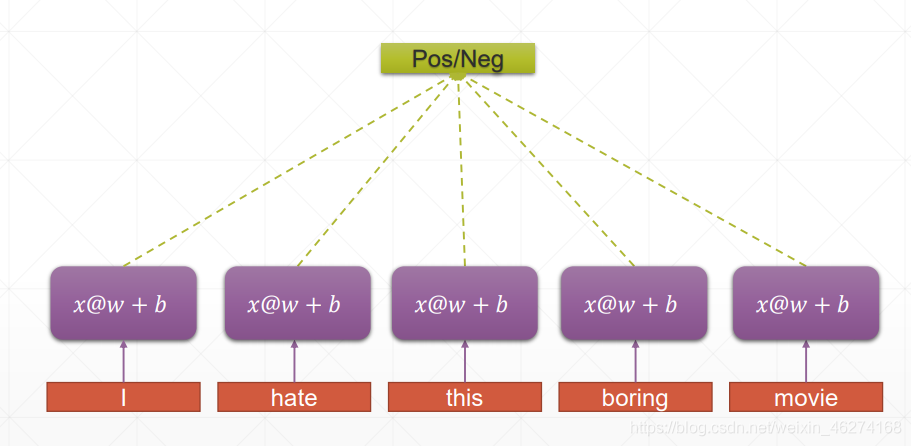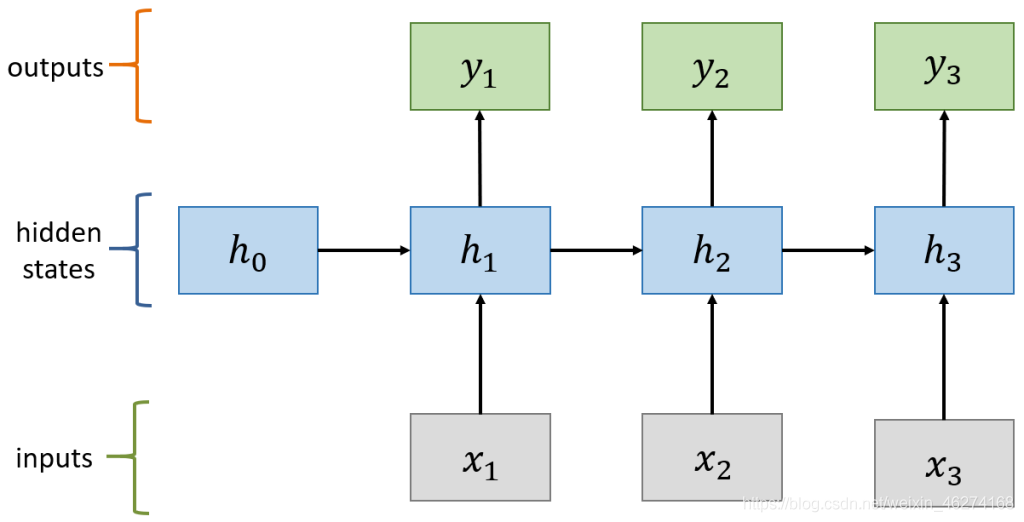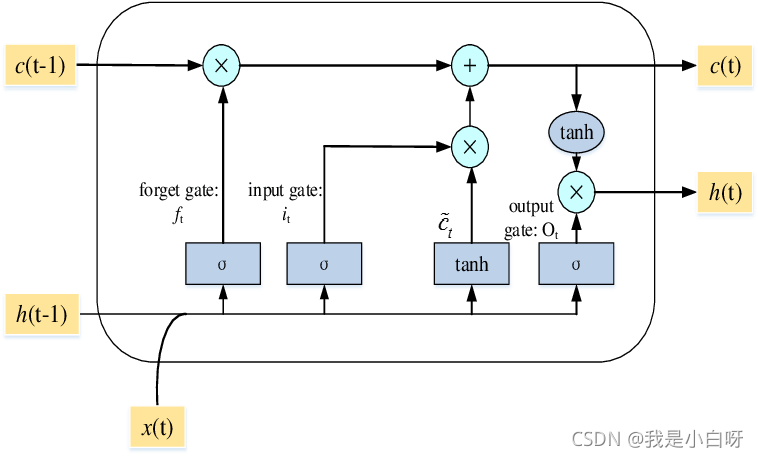Python机器学习NLP自然语言处理基本操作之京东评
目录
- 概述
- RNN
- 权重共享
- 计算过程
- LSTM
- 阶段
- 数据介绍
- 代码
- 预处理
- 主函数
概述
从今天开始我们将开启一段自然语言处理 (NLP) 的旅程. 自然语言处理可以让来处理, 理解, 以及运用人类的语言, 实现机器语言和人类语言之间的沟通桥梁.

RNN
RNN (Recurrent Neural Network), 即循环神经网络. RNN 相较于 CNN, 可以帮助我们更好的处理序列信息, 挖掘前后信息之间的联系. 对于 NLP 这类的任务, 语料的前后概率有极大的联系. 比如: “明天天气真好” 的概率 > “明天天气篮球”.

权重共享
传统神经网络:

RNN:

RNN 的权重共享和 CNN 的权重共享类似, 不同时刻共享一个权重, 大大减少了参数数量.
计算过程

计算状态 (State)

计算输出:

LSTM
LSTM (Long Short Term Memory), 即长短期记忆模型. LSTM 是一种特殊的 RNN 模型, 解决了长序列训练过程中的梯度消失和梯度爆炸的问题. 相较于普通 RNN, LSTM 能够在更长的序列中有更好的表现. 相比 RNN 只有一个传递状态 ht, LSTM 有两个传递状态: ct (cell state) 和 ht (hidden state).

阶段
LSTM 通过门来控制传输状态。
LSTM 总共分为三个阶段:
- 忘记阶段: 对上一个节点传进来的输入进行选择性忘记
- 选择记忆阶段: 将这个阶段的记忆有选择性的进行记忆. 哪些重要则着重记录下来, 哪些不重要, 则少记录一些
- 输出阶段: 决定哪些将会被当成当前状态的输出
数据介绍
约 3 万条评论数据, 分为好评和差评.

好评:
0 做父母一定要有刘墉这样的心态,不断地学习,不断地进步,不断地给自己补充新鲜血液,让自己保持一...
1 作者真有英国人严谨的风格,提出观点、进行论述论证,尽管本人对物理学了解不深,但是仍然能感受到...
2 作者长篇大论借用详细报告数据处理工作和计算结果支持其新观点。为什么荷兰曾经县有欧洲最高的生产...
3 作者在战几时之前用了"拥抱"令人叫绝.日本如果没有战败,就有会有美军的占领,没胡官僚主义的延...
4 作者在少年时即喜阅读,能看出他精读了无数经典,因而他有一个庞大的内心世界。他的作品最难能可贵...
5 作者有一种专业的谨慎,若能有幸学习原版也许会更好,简体版的书中的印刷错误比较多,影响学者理解...
6 作者用诗一样的语言把如水般清澈透明的思想娓娓道来,像一个经验丰富的智慧老人为我们解开一个又一...
7 作者提出了一种工作和生活的方式,作为咨询界的元老,不仅能提出理念,而且能够身体力行地实践,并...
8 作者妙语连珠,将整个60-70年代用层出不穷的摇滚巨星与自身故事紧紧相连什么是乡愁?什么是摇...
9 作者逻辑严密,一气呵成。没有一句废话,深入浅出,循循善诱,环环相扣。让平日里看到指标图释就头...
差评:
0 做为一本声名在外的流行书,说的还是广州的外企,按道理应该和我的生存环境差不多啊。但是一看之下...
1 作者有明显的自恋倾向,只有有老公养不上班的太太们才能像她那样生活。很多方法都不实用,还有抄袭...
2 作者完全是以一个过来的自认为是成功者的角度去写这个问题,感觉很不客观。虽然不是很喜欢,但是,...
3 作者提倡内调,不信任化妆品,这点赞同。但是所列举的方法太麻烦,配料也不好找。不是太实用。
4 作者的文笔一般,观点也是和市面上的同类书大同小异,不推荐读者购买。
5 作者的文笔还行,但通篇感觉太琐碎,有点文人的无病呻吟。自由主义者。作者的品性不敢苟同,无民族...
6 作者倒是个很小资的人,但有点自恋的感觉,书并没有什么大帮助
7 作为一本描写过去年代感情生活的小说,作者明显生活经验不足,并且文字功底极其一般,看后感觉浪费...
8 作为个人经验在网上谈谈可以,但拿来出书就有点过了,书中还有些明显的谬误。不过文笔还不错,建议...
9 昨天刚兴奋地写了评论,今天便遇一闹心事,因把此套书推荐给很多朋友,朋友就拖我在网上购,结果前...
代码
预处理
import numpy as np
import pandas as pd
import jieba
# 读取停用词
stop_words = pd.read_csv("stopwords.txt", index_col=None, names=["stop_word"])
stop_words = stop_words["stop_word"].values.tolist()
def load_data():
# 读取数据
neg = pd.read_excel("neg.xls", header=None)
pos = pd.read_excel("pos.xls", header=None)
# 调试输出
print(neg.head(10))
print(pos.head(10))
# 组合
x = np.concatenate((pos[0], neg[0]))
y = np.concatenate((np.ones(len(pos), dtype=int), np.zeros(len(neg), dtype=int)))
# 生成df
data = pd.DataFrame({"content": x, "label": y})
print(data.head())
data.to_csv("data.csv")
def pre_process(text):
# 分词
text = jieba.lcut(text)
# 去除数字
text = [w for w in text if not str(w).isdigit()]
# 去除左右空格
text = list(filter(lambda w: w.strip(), text))
# # 去除长度为1的字符
# text = list(filter(lambda w: len(w) > 1, text))
# 去除停用
text = list(filter(lambda w: w not in stop_words, text))
return " ".join(text)
if __name__ == '__main__':
# 读取数据
data = pd.read_csv("data.csv")
# 预处理
data["content"] = data["content"].apply(pre_process)
# 保存
data.to_csv("processed.csv", index=False)
主函数
import pandas as pd
import tensorflow as tf
from sklearn.model_selection import train_test_split
def tokenizer():
# 读取数据
data = pd.read_csv("processed.csv", index_col=False)
print(data.head())
# 转换成元组
X = tuple(data["content"])
# 实例化tokenizer
tokenizer = tf.keras.preprocessing.text.Tokenizer(num_words=30000)
# 拟合
tokenizer.fit_on_texts(X)
# 词袋
word_index = tokenizer.word_index
# print(word_index)
print(len(word_index))
# 转换
sequence = tokenizer.texts_to_sequences(X)
# 填充
characters = tf.keras.preprocessing.sequence.pad_sequences(sequence, maxlen=100)
# 标签转换
labels = tf.keras.utils.to_categorical(data["label"])
# 分割数据集
X_train, X_test, y_train, y_test = train_test_split(characters, labels, test_size=0.2,
random_state=0)
return X_train, X_test, y_train, y_test
def main():
# 读取分词数据
X_train, X_test, y_train, y_test = tokenizer()
print(X_train[:5])
print(y_train[:5])
# 超参数
EMBEDDING_DIM = 200 # embedding 维度
optimizer = tf.keras.optimizers.RMSprop() # 优化器
loss = tf.losses.CategoricalCrossentropy(from_logits=True) # 损失
# 模型
model = tf.keras.Sequential([
tf.keras.layers.Embedding(30001, EMBEDDING_DIM),
tf.keras.layers.LSTM(200, dropout=0.2, recurrent_dropout=0.2),
tf.keras.layers.Dropout(0.2),
tf.keras.layers.Dense(64, activation="relu"),
tf.keras.layers.Dense(2, activation="softmax")
])
model.build(input_shape=[None, 20])
print(model.summary())
# 组合
model.compile(optimizer=optimizer, loss=loss, metrics=["accuracy"])
# 保存
checkpoint = tf.keras.callbacks.ModelCheckpoint("model/jindong.h5py", monitor='val_accuracy', verbose=1,
save_best_only=True,
mode='max')
# 训练
model.fit(X_train, y_train, validation_data=(X_test, y_test), epochs=2, batch_size=32, callbacks=[checkpoint])
if __name__ == '__main__':
main()
输出结果:
Unnamed: 0 content label
0 0 做 父母 一定 要 有 刘墉 这样 的 心态 不断 地 学习 不断 地 进步 不断 地 给 ... 1
1 1 作者 真有 英国人 严谨 的 风格 提出 观点 进行 论述 论证 尽管 本人 对 物理学 了... 1
2 2 作者 长篇大论 借用 详细 报告 数据处理 工作 和 计算结果 支持 其新 观点 为什么 荷... 1
3 3 作者 在 战 几时 之前 用 了 " 拥抱 " 令人 叫绝 . 日本 如果 没有 战败 就 ... 1
4 4 作者 在 少年 时即 喜 阅读 能 看出 他 精读 了 无数 经典 因而 他 有 一个 庞大... 1
49366
[[ 0 0 0 0 0 0 0 0 0 0 0 0
0 0 0 0 0 0 0 0 0 0 0 0
0 0 0 0 0 0 0 0 0 0 0 0
0 0 0 0 0 0 0 0 0 0 0 0
0 0 0 0 0 0 0 0 0 0 0 0
0 0 0 0 0 0 0 0 0 0 0 0
0 0 0 0 0 0 0 0 0 0 0 0
0 205 1808 119 40 56 2139 1246 434 3594 1321 1715
9 165 15 22]
[ 0 0 0 0 0 0 0 0 0 0 0 0
0 0 0 0 0 0 0 0 0 0 0 0
0 0 0 0 0 0 0 0 0 0 0 0
0 0 0 0 0 0 0 0 0 0 0 0
0 0 0 0 0 0 0 0 0 0 0 0
0 0 0 0 0 0 0 0 0 0 0 0
0 0 0 0 0 0 0 0 0 0 0 0
0 1157 8 3018 1 62 851 34 4 23 455 365
46 239 1157 3903]
[ 0 0 0 0 0 0 0 0 0 0 0 0
0 0 0 0 0 0 0 0 0 0 0 0
0 0 0 0 0 0 0 0 0 0 0 0
0 0 0 0 0 0 0 0 0 0 0 0
0 0 0 0 0 0 0 0 0 0 0 0
0 0 0 0 0 0 0 0 0 0 0 0
0 0 0 0 0 0 0 0 0 0 0 0
0 1579 53 388 958 294 1146 18 1 49 1146 305
2365 1 496 235]
[ 0 0 0 0 0 0 0 0 0 0 0 0
0 0 0 0 0 0 0 0 0 0 0 0
0 0 0 0 0 0 0 0 0 0 0 0
0 0 0 0 0 0 0 0 0 0 0 0
0 0 0 0 0 0 0 0 0 0 0 0
0 0 0 0 0 0 0 0 0 0 0 0
0 0 0 0 0 0 0 0 0 0 0 0
0 0 0 0 0 0 0 0 0 213 4719 509
730 21403 524 42]
[ 0 0 0 0 0 0 0 0 0 0 0 0
0 0 0 0 0 0 0 0 0 0 0 0
0 0 0 0 0 0 0 0 0 0 0 0
0 0 0 0 0 0 0 0 0 0 0 0
0 0 0 0 0 0 0 0 0 0 0 0
0 0 0 0 0 0 0 0 0 0 0 0
0 0 0 0 0 0 105 159 1 5 16 11
24 2 299 294 8 39 306 16796 11 1778 29 2674
640 2 543 1820]]
[[0. 1.]
[0. 1.]
[1. 0.]
[1. 0.]
[1. 0.]]
2021-09-20 18:59:07.031583: W tensorflow/stream_executor/platform/default/dso_loader.cc:64] Could not load dynamic library 'nvcuda.dll'; dlerror: nvcuda.dll not found
2021-09-20 18:59:07.031928: W tensorflow/stream_executor/cuda/cuda_driver.cc:326] failed call to cuInit: UNKNOWN ERROR (303)
2021-09-20 18:59:07.037546: I tensorflow/stream_executor/cuda/cuda_diagnostics.cc:169] retrieving CUDA diagnostic information for host: DESKTOP-VVCH1JQ
2021-09-20 18:59:07.037757: I tensorflow/stream_executor/cuda/cuda_diagnostics.cc:176] hostname: DESKTOP-VVCH1JQ
2021-09-20 18:59:07.043925: I tensorflow/core/platform/cpu_feature_guard.cc:142] This TensorFlow binary is optimized with oneAPI Deep Neural Network Library (oneDNN) to use the following CPU instructions in performance-critical operations: AVX AVX2
To enable them in other operations, rebuild TensorFlow with the appropriate compiler flags.
Model: "sequential"
_________________________________________________________________
Layer (type) Output Shape Param #
=================================================================
embedding (Embedding) (None, None, 200) 6000200
_________________________________________________________________
lstm (LSTM) (None, 200) 320800
_________________________________________________________________
dropout (Dropout) (None, 200) 0
_________________________________________________________________
dense (Dense) (None, 64) 12864
_________________________________________________________________
dense_1 (Dense) (None, 2) 130
=================================================================
Total params: 6,333,994
Trainable params: 6,333,994
Non-trainable params: 0
_________________________________________________________________
None
2021-09-20 18:59:07.470578: I tensorflow/compiler/mlir/mlir_graph_optimization_pass.cc:176] None of the MLIR Optimization Passes are enabled (registered 2)
Epoch 1/2
C:\Users\Windows\Anaconda3\lib\site-packages\tensorflow\python\keras\backend.py:4870: UserWarning: "`categorical_crossentropy` received `from_logits=True`, but the `output` argument was produced by a sigmoid or softmax activation and thus does not represent logits. Was this intended?"
'"`categorical_crossentropy` received `from_logits=True`, but '
528/528 [==============================] - 272s 509ms/step - loss: 0.3762 - accuracy: 0.8476 - val_loss: 0.2835 - val_accuracy: 0.8839Epoch 00001: val_accuracy improved from -inf to 0.88391, saving model to model\jindong.h5py
2021-09-20 19:03:40.563733: W tensorflow/python/util/util.cc:348] Sets are not currently considered sequences, but this may change in the future, so consider avoiding using them.
Epoch 2/2
528/528 [==============================] - 299s 566ms/step - loss: 0.2069 - accuracy: 0.9266 - val_loss: 0.2649 - val_accuracy: 0.9005Epoch 00002: val_accuracy improved from 0.88391 to 0.90050, saving model to model\jindong.h5py
到此这篇关于Python机器学习NLP自然语言处理基本操作之京东评论分类的文章就介绍到这了,更多相关Python NLP 京东评论分类内容请搜索hwidc以前的文章或继续浏览下面的相关文章希望大家以后多多支持hwidc!
【本文由:http://www.nextecloud.cn/flb.html提供,感谢】